Find Help
More Items From Ergsy search
-

NHSGGC - Cervical Cancer Screening - English
Relevance: 100%
-

When should cervical cancer screening begin?
Relevance: 98%
-
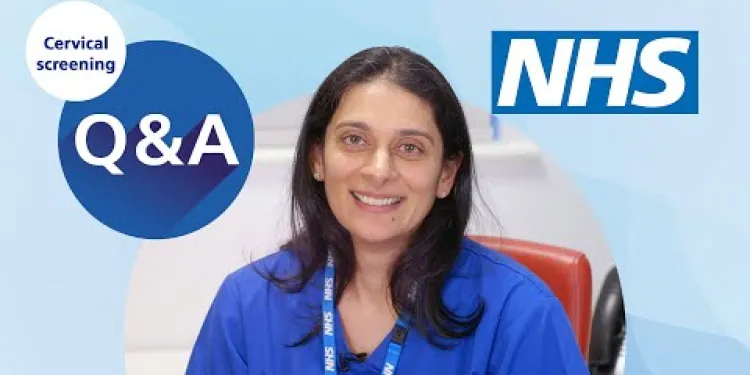
Cervical screening: Q&A | NHS
Relevance: 93%
-
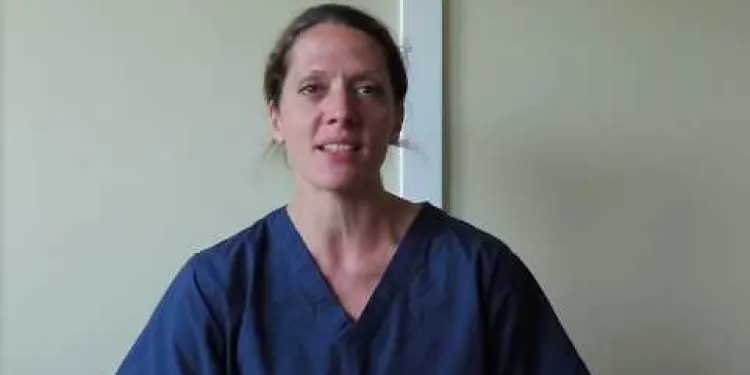
The NHS is #StillHereToHelp with cervical screening
Relevance: 87%
-
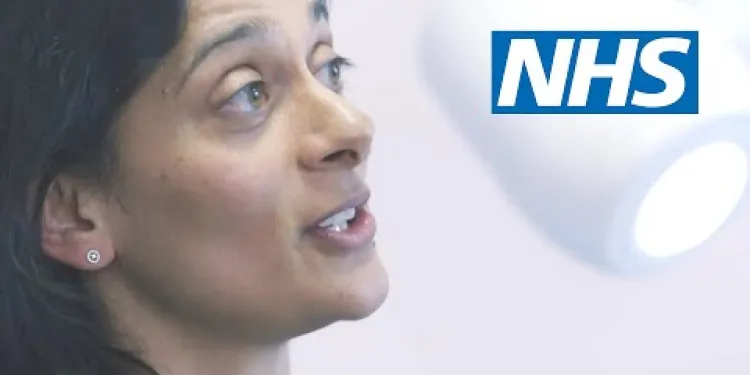
Cervical screening: what to expect | NHS
Relevance: 85%
-
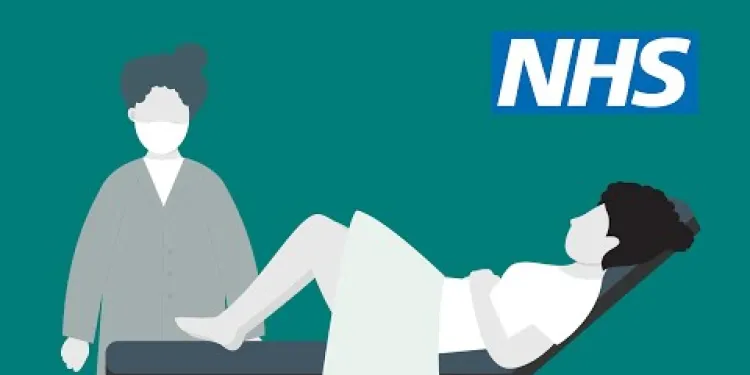
Cervical screening: how it's done | NHS
Relevance: 85%
-
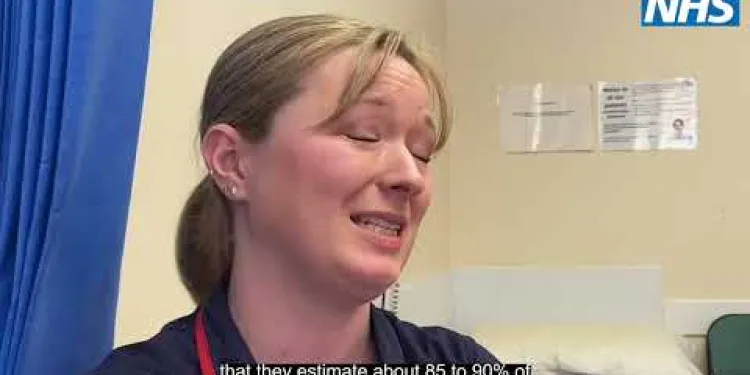
What is cervical screening (smear test)?
Relevance: 84%
-
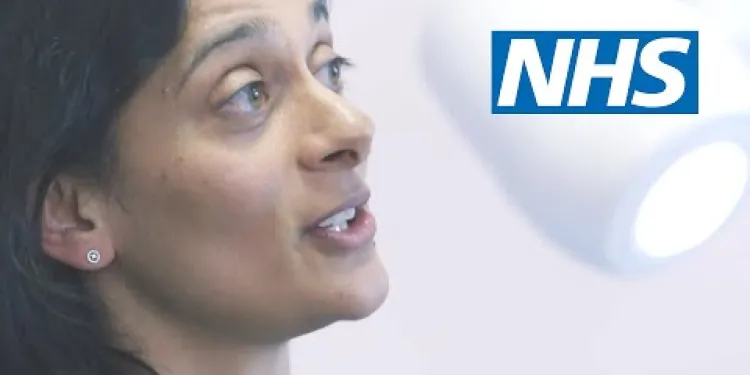
Cervical screening: what to expect | NHS
Relevance: 84%
-
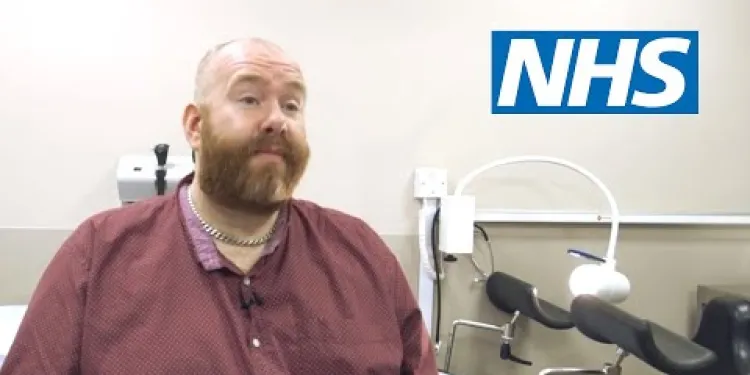
Cervical screening for transgender men | NHS
Relevance: 84%
-

What is the link between HPV and cervical cancer?
Relevance: 82%
-

Don’t ignore your cervical screening invite | NHS
Relevance: 82%
-

Cervical screening (smear test) – what’s it all about?
Relevance: 80%
-

What is cancer screening?
Relevance: 74%
-

What kinds of cancer screening are available?
Relevance: 74%
-

Accessing cervical screening with the right support for people with a learning disability
Relevance: 74%
-

Cervical screening for women who have experienced sexual assault | NHS
Relevance: 73%
-
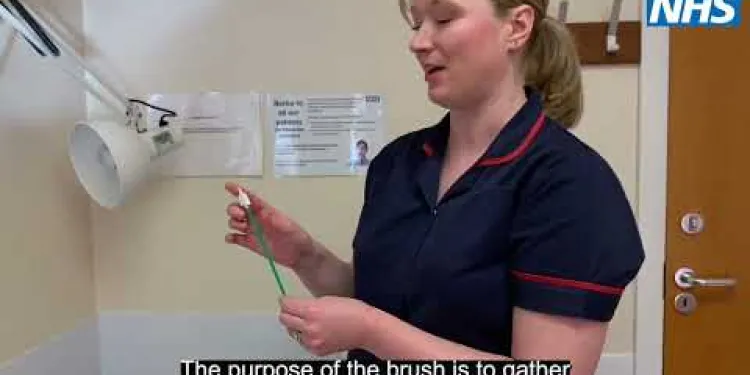
Booked in for your smear test (cervical screening) and not sure what to expect?
Relevance: 72%
-

Health Screenings You Should Know About
Relevance: 62%
-

AI Breast Cancer Screening in the UK
Relevance: 59%
-
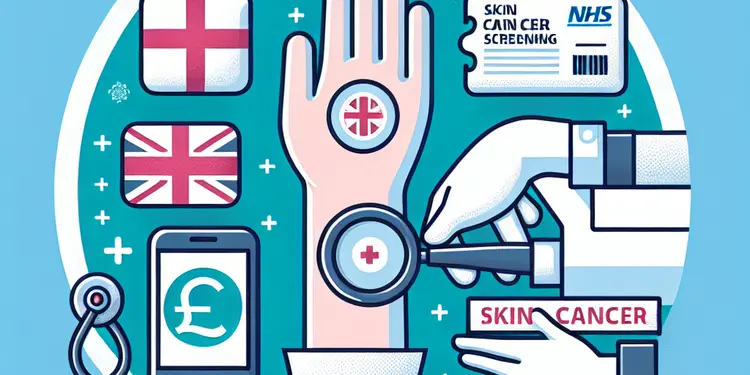
What is a skin cancer screening?
Relevance: 58%
-

NHS breast cancer screening
Relevance: 57%
-

Can HPV lead to cancer?
Relevance: 56%
-

Is genetic screening available for cancer risk?
Relevance: 55%
-

What are the recommendations for colorectal cancer screening?
Relevance: 55%
-

Are there any risk factors that increase the need for cancer screening?
Relevance: 52%
-

Can lifestyle changes impact the efficacy of cancer screening?
Relevance: 52%
-

How often should I get screened for breast cancer?
Relevance: 52%
-

Can robots perform lung cancer screenings?
Relevance: 51%
-
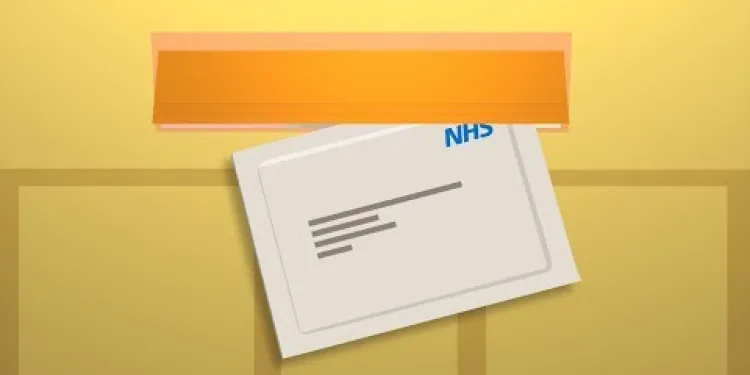
How to do the FIT bowel cancer screening test | Cancer Research UK
Relevance: 51%
-

How does increased screening impact bowel cancer statistics?
Relevance: 51%
-

Bowel cancer screening: Alan Titchmarsh and Tommy Walsh | NHS
Relevance: 50%
-
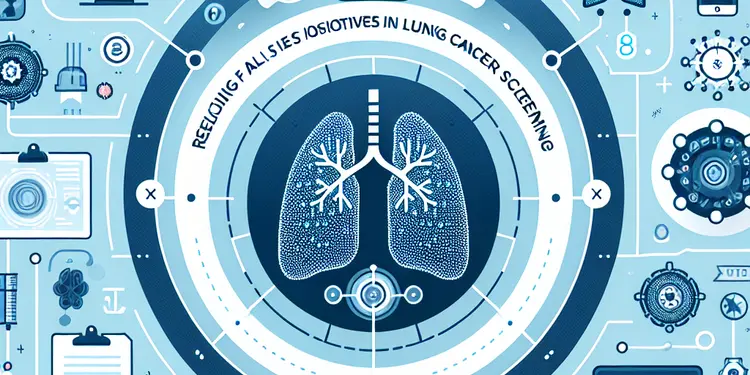
Can AI systems reduce the rate of false positives in lung cancer screening?
Relevance: 48%
-

Vaginal Cancer
Relevance: 45%
-
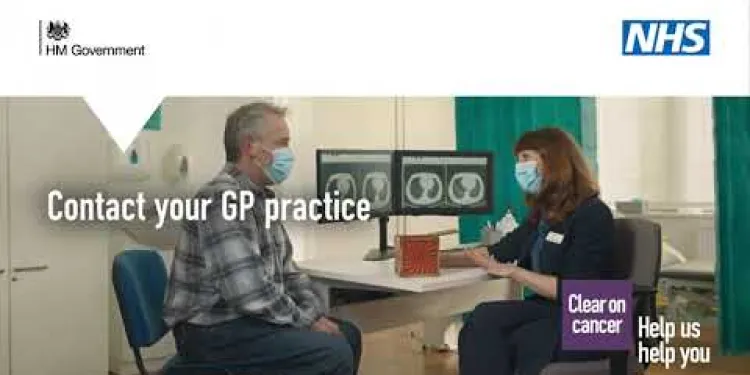
Don't carry the worry of cancer with you | NHS
Relevance: 44%
-

Is HPV testing available?
Relevance: 43%
-

Worried about signs that could be cancer? Contact your GP practice | NHS
Relevance: 42%
-
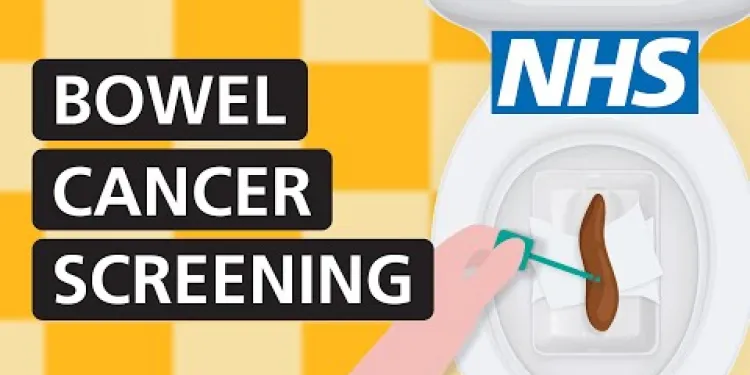
How to use the bowel cancer screening FIT kit | NHS
Relevance: 41%
-

What health problems can HPV cause?
Relevance: 41%
-

Are there symptoms of an HPV infection?
Relevance: 41%
-

How common is bowel cancer?
Relevance: 39%
NHSGGC - Cervical Cancer Screening
Introduction
The NHS Greater Glasgow and Clyde (NHSGGC) offers a comprehensive cervical cancer screening programme to women in the United Kingdom. Cervical cancer screening is a vital process that helps in the early detection and prevention of cervical cancer, significantly reducing the risk of advanced cancer and improving overall health outcomes.
Who Should Get Screened
Cervical cancer screening is recommended for women aged 25 to 64. The program invites women for screening every three years for those aged 25 to 49 and every five years for those aged 50 to 64. It is important to note that even women who have received the HPV vaccine should still attend screening as the vaccine does not cover all types of HPV that can cause cervical cancer.
Screening Process
The screening test, commonly known as a smear or Pap test, involves collecting a small sample of cells from the cervix. This sample is then analyzed to detect any abnormal changes or the presence of high-risk Human Papillomavirus (HPV), a virus known to cause most cervical cancers. The process is quick, usually taking only a few minutes, and while it may be a bit uncomfortable, it should not be painful.
Importance of Screening
Early detection is crucial. Screening can identify precancerous changes in the cervix, allowing for prompt treatment before cancer develops. Regular screening has been shown to significantly reduce the incidence of cervical cancer. It is an essential preventive measure that can save lives by catching abnormalities early when they are most treatable.
What Happens After Screening
If your test results are normal, you will be invited for your next screening in three or five years, depending on your age. If abnormal cells are found, you might be referred for further testing and treatment, such as a colposcopy, to examine the cervix in more detail. Finding abnormal cells early means they can often be treated before they turn into cancer.
Conclusion
NHSGGC’s cervical cancer screening programme is a vital health service aimed at protecting women from the potentially life-threatening impacts of cervical cancer. Regular participation in screening can help detect problems early and ensure timely treatment. For more information, or to book your screening, contact your GP or healthcare provider.
NHSGGC - Cervical Cancer Screening
Introduction
The NHS Greater Glasgow and Clyde (NHSGGC) helps women stay healthy by checking for cervical cancer. This check-up is important because it can find cancer early. If we find it early, it is easier to treat and can stop it from getting worse.
Who Should Get Screened
Women aged 25 to 64 should have this check-up. Women aged 25 to 49 should go every three years. Women aged 50 to 64 should go every five years. Even if you had the HPV vaccine, you still need the check-up because it looks for other types of HPV not covered by the vaccine.
Screening Process
The test, called a smear or Pap test, takes a tiny sample of cells from your cervix. The test checks for changes in these cells or for a virus called HPV that can cause cancer. The test is quick and only takes a few minutes. It might feel a little uncomfortable but should not hurt.
Importance of Screening
Finding problems early is very important. The check-up can find changes in your cervix before you get cancer. Having regular tests can stop cancer from happening. It helps find problems when they are easy to treat, which can save lives.
What Happens After Screening
If your test is normal, you will get your next check-up in three or five years, depending on your age. If there are changes in your cells, you may need more tests or treatment to look at your cervix in more detail. Finding changes early means they can be fixed before they turn into cancer.
Conclusion
NHSGGC’s cervical cancer screening is important to keep women healthy. Going for regular check-ups can find problems early and help you get treatment in time. To find out more or to book your check-up, contact your doctor or healthcare provider.
Frequently Asked Questions
What is cervical cancer screening?
Cervical cancer screening is a test to check the health of the cervix, which is the lower part of the womb. The screening test can help detect abnormal cells that may develop into cancer.
Who should attend cervical cancer screening?
All women and people with a cervix aged 25 to 64 should attend regular cervical screening.
How often should I get screened?
In Scotland, you will be invited for screening every 5 years between the ages of 25 and 64.
How is the screening test done?
The test involves taking a small sample of cells from your cervix using a speculum and a small brush. It's quick and usually not painful, though it can sometimes be uncomfortable.
Can I book my screening outside of the invitation times?
If you have missed your screening appointment, you can contact your GP or local clinic to book a test.
What happens if my test results are abnormal?
If your test results are abnormal, you may need further tests or treatment. Your GP will guide you through the next steps.
Is cervical cancer screening necessary if I've had the HPV vaccine?
Yes, you should still attend screening even if you've had the HPV vaccine, as the vaccine does not protect against all types of HPV that can cause cervical cancer.
Can I have cervical screening if I'm pregnant?
It's usually recommended to delay the screening until 12 weeks after giving birth, unless you were due for a test before you became pregnant or have had abnormal test results in the past.
What are the risks of cervical cancer screening?
Cervical screening is a safe procedure, but like all medical tests, it carries some risks. Sometimes it can lead to anxiety, especially if further tests are needed, but the benefits of early detection far outweigh these risks.
Will I be notified of my results?
Yes, you will receive a letter with your results typically within 2-3 weeks of your screening.
Can I choose a female nurse for the screening?
Yes, you have the right to request a female practitioner for your cervical screening test.
What should I do if I have symptoms but my last screening was normal?
If you experience symptoms like unusual bleeding, pain, or discharge, you should see your GP regardless of your last screening result.
How can I prepare for my screening appointment?
Try to schedule your appointment for when you’re not having your period. Wear comfortable clothes and try to relax as much as possible.
Are there any costs associated with cervical cancer screening?
No, cervical cancer screening is free through the NHS for eligible individuals.
What should I do if I missed my appointment?
If you missed your appointment, you should contact your GP or the health clinic to reschedule as soon as possible.
What is cervical cancer screening?
Cervical cancer screening is a test. It looks for signs of cancer in the cervix. The cervix is a part inside a woman's body. It connects the uterus (where a baby grows) to the vagina.
Doctors do this test to find cancer early. Finding it early means it can be treated better.
Here are some tips to help understand the test:
- Ask a doctor or nurse to explain what happens in the test.
- You can ask questions if you are not sure.
- Take a friend or family member with you for support.
Cervical cancer screening is a test to check if your cervix is healthy. The cervix is the lower part of the womb, where a baby grows. The test looks for cells that are not normal and could turn into cancer.
Who should go for cervical cancer tests?
All women and anyone with a cervix who is between 25 and 64 should go for regular cervical check-ups.
How often should I have a check-up?
You should go for a health check-up sometimes to stay healthy. How often you go depends on your age and health. Ask your doctor how often you need to go.
Helpful tip: Use a calendar to write down your check-up dates. You can also use reminders on your phone.
In Scotland, you will get a letter to come for a health check every 5 years if you are between 25 and 64 years old.
How do they do the screening test?
The screening test is a way to check if you are healthy. Here is how they do it:
- First, you go to the doctor or nurse.
- They might ask you some questions about your health.
- They will do some checks, like measuring your height and weight.
- They may also take a small sample of your blood.
- All these things help them see if you are healthy.
Here are some tips to make it easier:
- Bring someone with you if you feel nervous.
- Ask the doctor or nurse to explain things slowly.
- Take deep breaths to stay calm.
This is to make sure you feel good and stay healthy!
The test checks for changes in your cervix. The doctor uses a tool called a speculum to see inside, and a small brush to take some cells. It's fast and shouldn't hurt, but it might feel a bit uncomfortable.
Can I make my appointment at a different time?
You can choose a time that works for you. If you need help, you can:
- Ask a family member or friend to help you.
- Call the health clinic for advice.
- Use a calendar or reminder app to remember your appointment.
If you missed your health check-up, call your doctor or local clinic to book a test.
What if my test results are not normal?
If your test results are not normal, you might need more tests or help. Your doctor will tell you what to do next.
Do I still need to check for cervical cancer if I've had the HPV shot?
The HPV shot helps keep you safe from a virus that can cause cervical cancer. But you still need to check for cancer in your cervix.
Checking helps catch any problems early. Early treatment works better.
Ask a doctor when you need these checks.
To remember your check-ups, use a calendar or phone reminder.
Yes, you should still go to your check-up, even if you've had the HPV vaccine. The vaccine doesn't protect you from all the types of HPV that can cause cervical cancer.
Can I have a cervical screening test if I'm pregnant?
If you are pregnant, you usually wait until after you have your baby to have the cervical screening test.
It is safe to wait. You can talk to your doctor or nurse if you have questions.
If you need help understanding, ask someone you trust to explain it to you.
Doctors say it's best to wait 12 weeks after having a baby to get screened. But if you needed a test before getting pregnant or had different results in the past, you might need it sooner.
What are the risks of checking for cervical cancer?
Checking for cervical cancer is called a screening test. This test helps find cancer early.
Here are some things to think about when you go for this test:
- False Alarms: Sometimes the test says there might be cancer, but there isn't. This can make you feel worried.
- Missed Cancers: The test might not see that cancer is there. This means it could be missed.
- Extra Tests: If the test finds something, you might need more tests. These can be uncomfortable.
If you are worried or have questions, talk to your doctor or nurse. They can help explain things.
Cervical screening is a safe medical test. But, like other tests, it has some small risks. Sometimes, you might feel worried if you need more tests. But finding any health problems early is really helpful, and it's much better than the risks.
To make this easier, you can:
- Talk to your doctor or nurse if you feel worried.
- Bring a friend or family member with you for support.
- Use calming techniques like deep breathing to relax.
Will I be told my results?
Yes, you will get a letter with your results usually 2-3 weeks after your check-up.
If you need help reading the letter, ask someone you trust to help you. You can also use tools that read text out loud.
Is it okay to ask for a woman nurse for the check-up?
If you want, you can ask for a woman nurse to help you. You can tell the people at the check-up what makes you feel comfortable.
Here are some tips to help:
- Ask a friend or family member to come with you.
- Write down your questions before you go.
- Tell the nurse if you have any worries or need help.
Yes, you can ask for a woman doctor or nurse to do your cervical screening test.
What do I do if I feel sick but my last check-up was okay?
If you have symptoms like bleeding that is not normal, pain, or strange discharge, you should go to your doctor. This is important even if your last test was fine.
How can I get ready for my check-up appointment?
Here are some simple steps to help you get ready for your check-up:
- Ask for help: You can ask a family member or friend to come with you.
- Write it down: Make a list of any questions you have.
- Bring what you need: Take any papers or forms you have been given.
- Take notes: Write down what the doctor says to remember later.
You can also use tools like picture books or charts to help understand better.
Try to book your appointment when you don't have your period. Wear comfy clothes and try to stay calm.
Do you have to pay for cervical cancer tests?
No, you can get a cervical cancer test for free with the NHS if you are eligible.
What can I do if I forget my appointment?
Here are some simple steps to help:
- Stay calm. It's okay to miss things sometimes.
- Check if you can make a new appointment. Call or email the place you had the appointment with.
- Write down the new date and time so you won't forget again.
Helpful tools: You can use a calendar or a reminder app on your phone to remember appointments.
If you miss your appointment, call your doctor’s office or health clinic. Make a new appointment soon.
Useful Links
This website offers general information and is not a substitute for professional advice.
Always seek guidance from qualified professionals.
If you have any medical concerns or need urgent help, contact a healthcare professional or emergency services immediately.
- Ergsy carfully checks the information in the videos we provide here.
- Videos shown by Youtube after a video has completed, have NOT been reviewed by ERGSY.
- To view, click the arrow in centre of video.
- Most of the videos you find here will have subtitles and/or closed captions available.
- You may need to turn these on, and choose your preferred language.
- Go to the video you'd like to watch.
- If closed captions (CC) are available, settings will be visible on the bottom right of the video player.
- To turn on Captions, click settings .
- To turn off Captions, click settings again.
More Items From Ergsy search
-

NHSGGC - Cervical Cancer Screening - English
Relevance: 100%
-

When should cervical cancer screening begin?
Relevance: 98%
-

Cervical screening: Q&A | NHS
Relevance: 93%
-

The NHS is #StillHereToHelp with cervical screening
Relevance: 87%
-

Cervical screening: what to expect | NHS
Relevance: 85%
-

Cervical screening: how it's done | NHS
Relevance: 85%
-

What is cervical screening (smear test)?
Relevance: 84%
-

Cervical screening: what to expect | NHS
Relevance: 84%
-

Cervical screening for transgender men | NHS
Relevance: 84%
-

What is the link between HPV and cervical cancer?
Relevance: 82%
-

Don’t ignore your cervical screening invite | NHS
Relevance: 82%
-

Cervical screening (smear test) – what’s it all about?
Relevance: 80%
-

What is cancer screening?
Relevance: 74%
-

What kinds of cancer screening are available?
Relevance: 74%
-

Accessing cervical screening with the right support for people with a learning disability
Relevance: 74%
-

Cervical screening for women who have experienced sexual assault | NHS
Relevance: 73%
-

Booked in for your smear test (cervical screening) and not sure what to expect?
Relevance: 72%
-

Health Screenings You Should Know About
Relevance: 62%
-

AI Breast Cancer Screening in the UK
Relevance: 59%
-

What is a skin cancer screening?
Relevance: 58%
-

NHS breast cancer screening
Relevance: 57%
-

Can HPV lead to cancer?
Relevance: 56%
-

Is genetic screening available for cancer risk?
Relevance: 55%
-

What are the recommendations for colorectal cancer screening?
Relevance: 55%
-

Are there any risk factors that increase the need for cancer screening?
Relevance: 52%
-

Can lifestyle changes impact the efficacy of cancer screening?
Relevance: 52%
-

How often should I get screened for breast cancer?
Relevance: 52%
-

Can robots perform lung cancer screenings?
Relevance: 51%
-

How to do the FIT bowel cancer screening test | Cancer Research UK
Relevance: 51%
-

How does increased screening impact bowel cancer statistics?
Relevance: 51%
-

Bowel cancer screening: Alan Titchmarsh and Tommy Walsh | NHS
Relevance: 50%
-

Can AI systems reduce the rate of false positives in lung cancer screening?
Relevance: 48%
-

Vaginal Cancer
Relevance: 45%
-

Don't carry the worry of cancer with you | NHS
Relevance: 44%
-

Is HPV testing available?
Relevance: 43%
-

Worried about signs that could be cancer? Contact your GP practice | NHS
Relevance: 42%
-

How to use the bowel cancer screening FIT kit | NHS
Relevance: 41%
-

What health problems can HPV cause?
Relevance: 41%
-

Are there symptoms of an HPV infection?
Relevance: 41%
-

How common is bowel cancer?
Relevance: 39%


